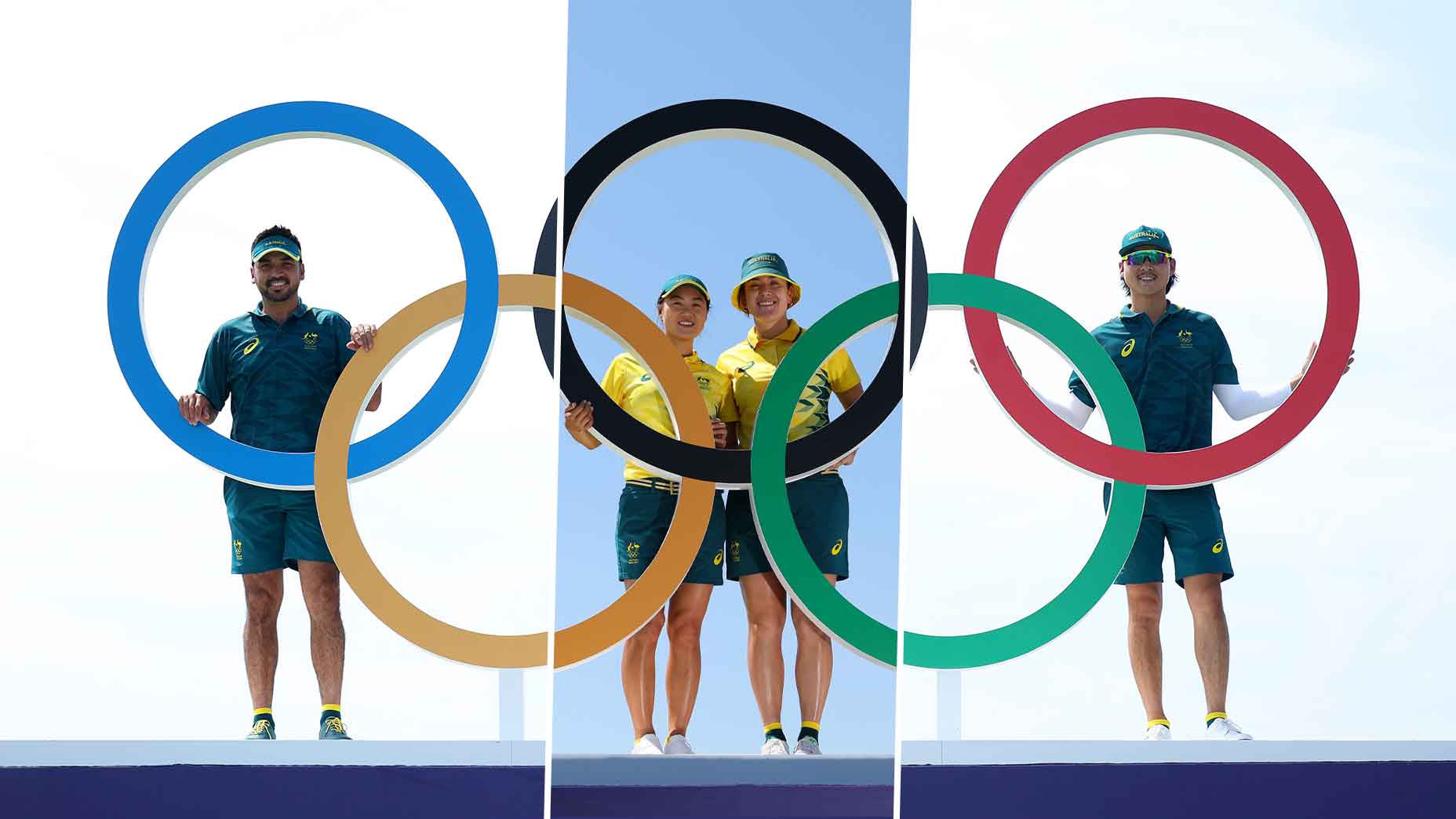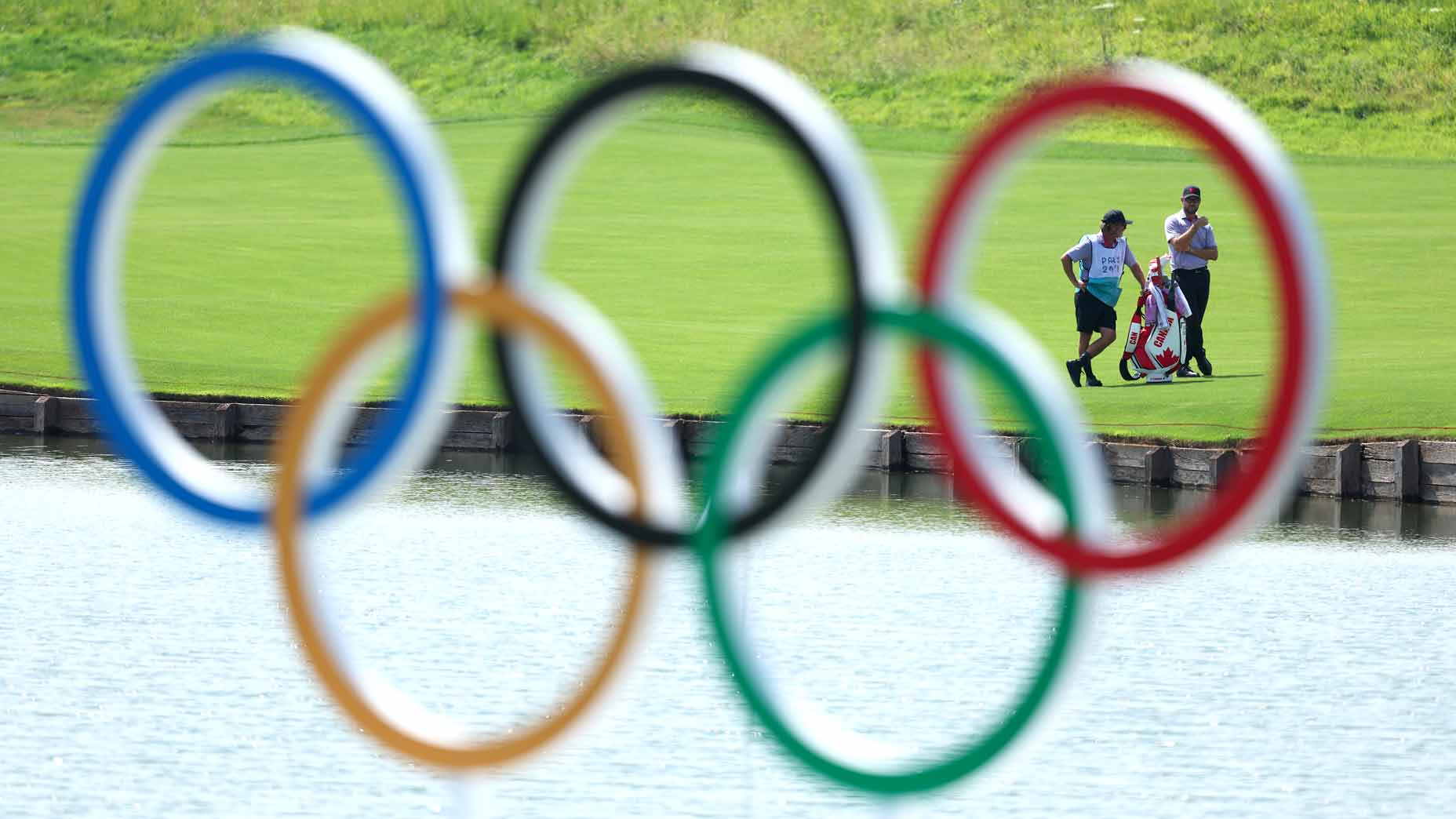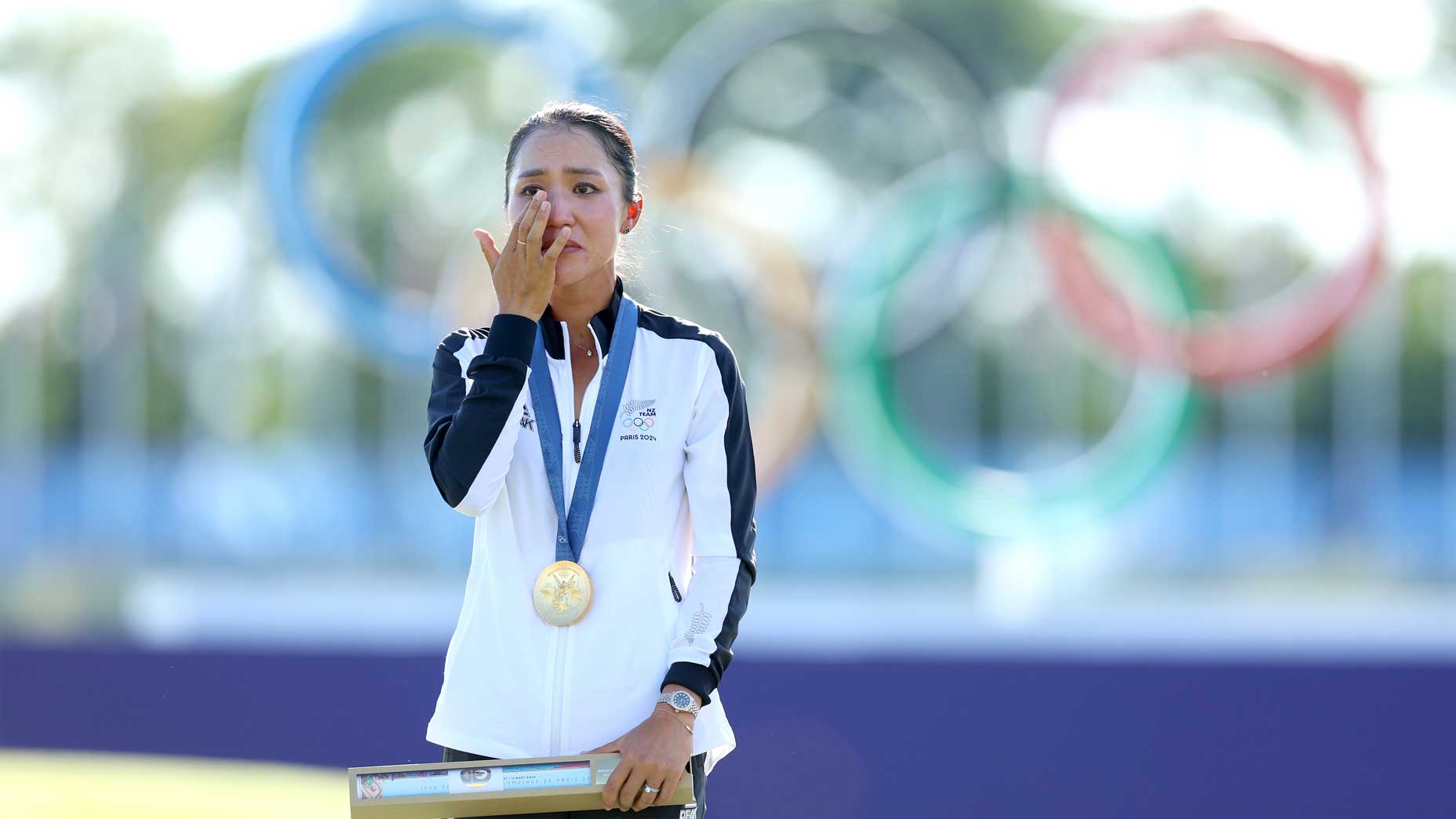KAWAGOE, Japan — The hope is that this post becomes irrelevant entirely, but at the moment it’s possible the women’s Olympic golf event could be shortened to 54 holes thanks to Mother Nature.
A thus-far-unnamed tropical system is headed for Japan. It’s expected to arrive between Friday and Saturday in the greater Tokyo area, and the rain it will bring to Kasumigaseki Country Club may make it difficult for the women’s event to finish in time.
Per an Olympics rule, all competitions must be completed by the time of the closing ceremony, which is 8 p.m. local time Sunday evening. Though the women’s event began on Wednesday in Japan, the impending forecasts do not look kind for the final round. According to the IGF’s Heather Daly-Donofrio, event meteorologists are expecting a 70% chance of storms on Saturday. The governing body informed players and media members of the possibility of the event being shortened Wednesday evening.
Heat exhaustion and Nelly Korda contending: What you missed overnight at the OlympicsBy: Sean Zak
“That’s important for them to know from a competitive perspective,” Daly-Donofrio said. “Obviously for a lot of players, there’s a lot of strategy depending on how they played today, may alter their strategy over the course of the next two days if there’s a potential that the medals could be awarded after 54 instead of 72.”
The Olympics have already witnessed what one tropical storm can do to a golf competition. The first two rounds of the men’s tournament both saw inclement weather delays that kept golfers off the course, and even extended the men’s second round into Saturday morning. Storms hung in the area despite little rain actually falling on the course during normal playing hours, with the threat of lightning enough to keep players in the clubhouse.
Saturday’s final round is currently in danger of seeing similar delays. That’s where some preventative planning might normally take place for the IGF. Unfortunately, their collective hands seem tied. Thursday’s first round saw heat indexes as high as 108 degrees Fahrenheit throughout the afternoon. Players may be used to playing in the heat, but caddies are doing plenty of heavy lifting throughout. Lexi Thompson’s caddie Jack Fulghum was forced to bow out after 15 holes due to heat exhaustion, just days after Yuka Saso’s caddie Lionel Matichuk was rushed to the hospital for heat stroke. Both are recovering well now, but Matichuk at the very least is no longer caddying this week.
Thursday and Friday are expected to be just as warm at Kasumigaseki, which has forced the International Golf Federation to analyze how much golf could be added to a normal day’s slate in order to finish the event ahead of schedule.
“We had conversations with our medical directors about the heat and the potential risk and health and safety for our players and our caddies,” Daly-Donofrio said. “We were advised that they should not be playing more than 18 holes a day in these extreme temperatures. These are not temperatures we typically play in.”
So for now, the event will press on as intended, and organizers will closely track the forecasting of the tropical cyclone as time passes. The Japan Meteorological Agency currently has the storm tracking directly over the entirety of the country, which just means the storms expected to arrive on Saturday will almost surely sustain through Sunday. The same event meteorologists are currently forecasting an 80% chance of storms on Sunday, the last day any golf can be played at these Olympics. No final decision on the length of the event will be made until at least after Thursday’s second round.











